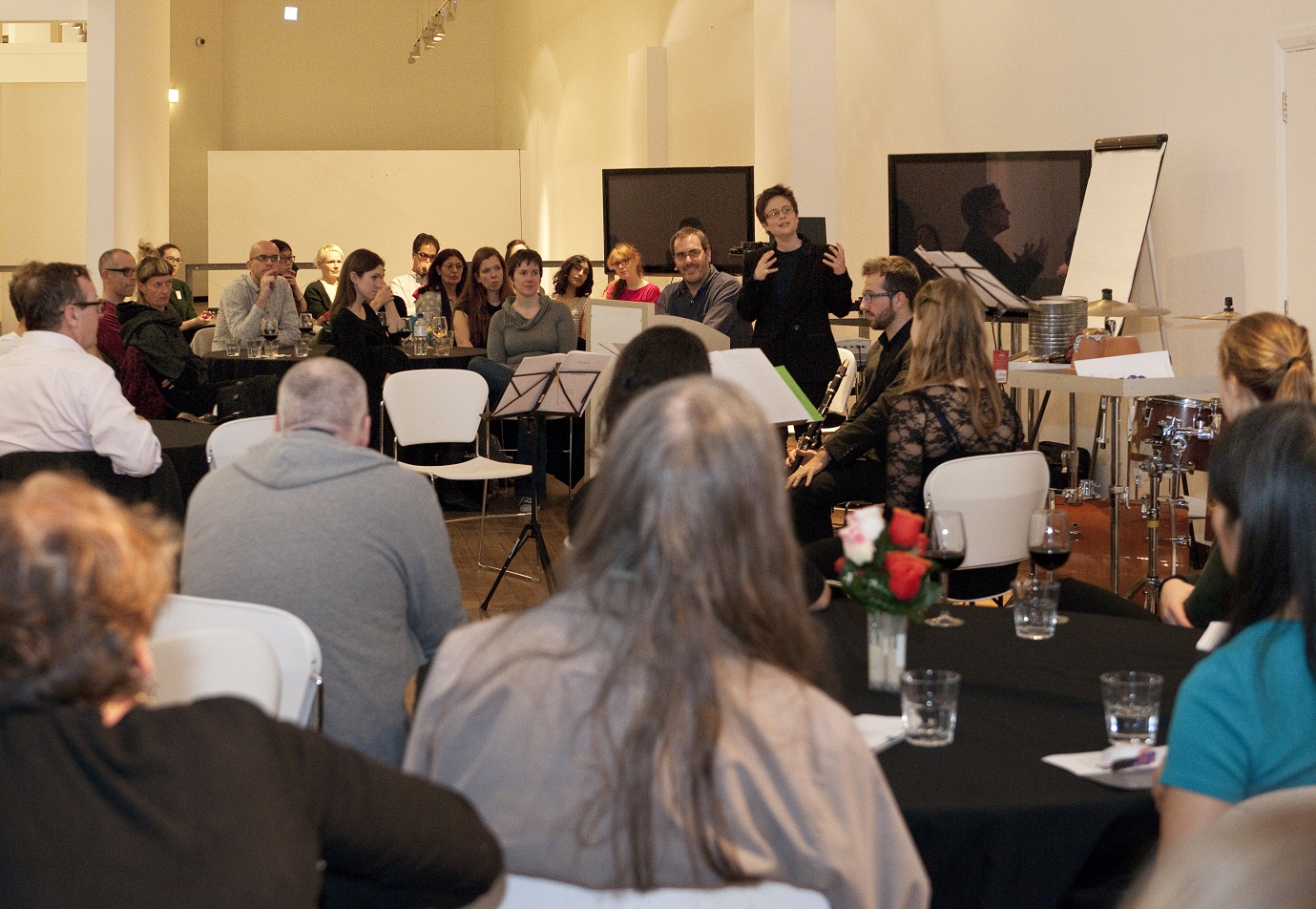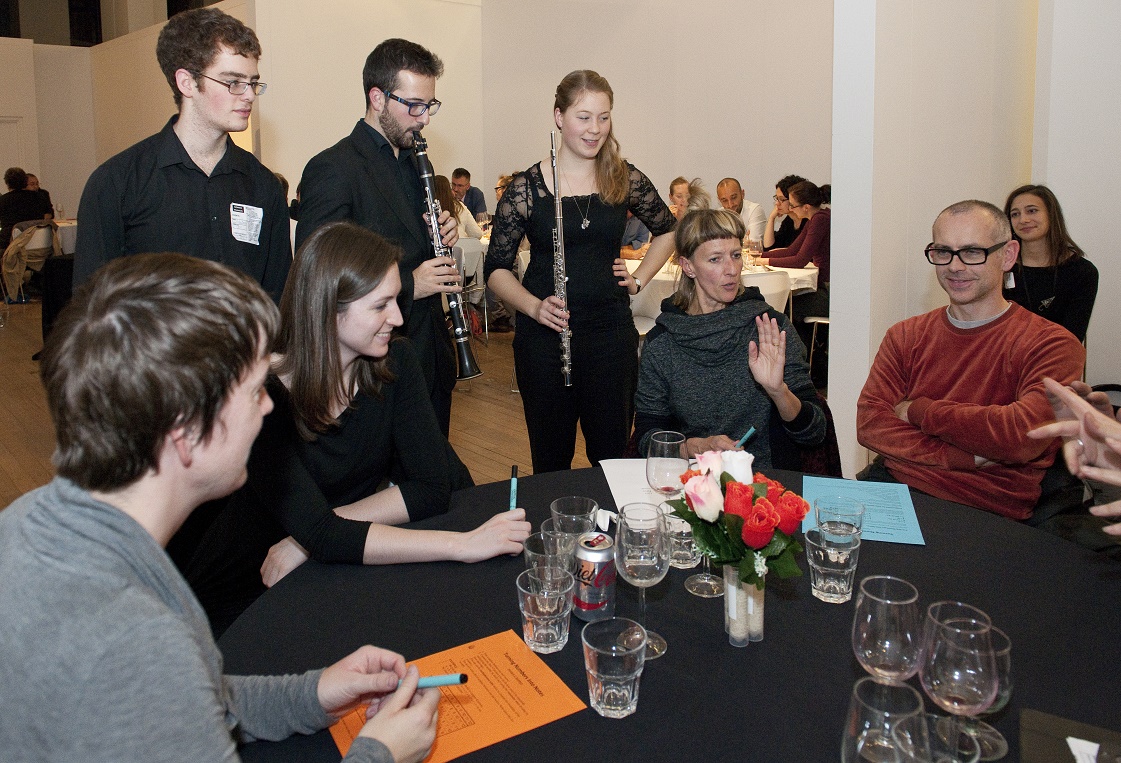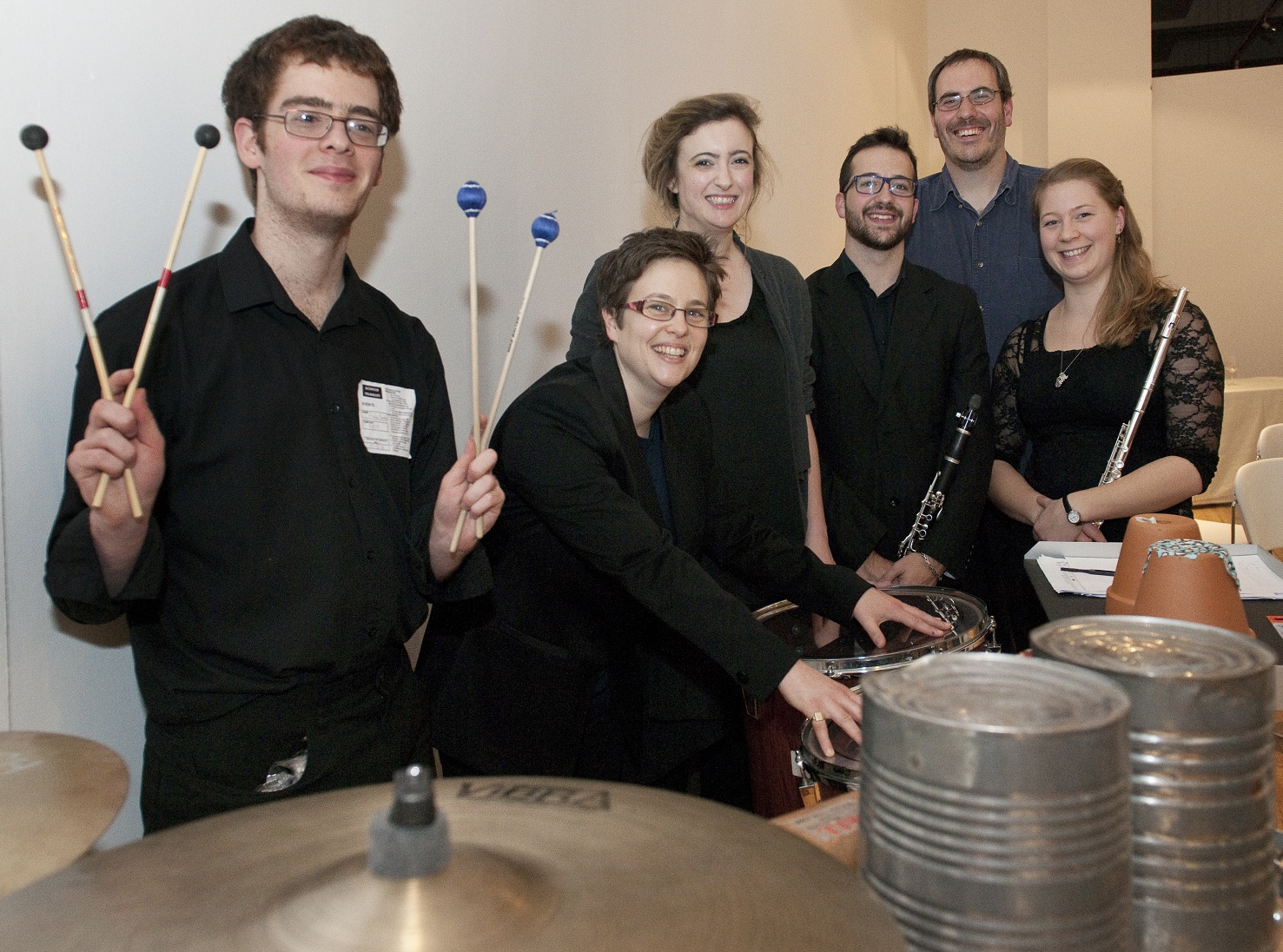Alumna’s Tribute to Pioneering Mathematician
Four RNCM musicians performed Emily Howard’s Ada sketches at the Science Museum, London, in October as part of an event celebrating the 200th anniversary of Ada Lovelace’s birth.
Born in London in December 1815, Ada Lovelace, the daughter of Byron, was a pioneering mathematician, often referred to as the first computer programmer due to the investigative work she carried out on Charles Babbage’s Analytical Engine. In 1842 Ada wrote notes about her findings, explaining in detail thoughts that the engine might be able to turn numbers into notes:
‘Supposing, for instance, that the fundamental relations of pitched sounds in the science of harmony and of musical composition were susceptible of such expression and adaptations, the engine might compose elaborate and scientific pieces of music of any degree of complexity or extent.’
And it is this vision, that a machine could make music, that inspired Emily to write Ada sketches, an opera scena for mezzo-soprano and chamber ensemble.
‘The piece is built from ideas within Ada’s own notes, and looks at her relationship with Babbage’s machine,’ said the RNCM alumna and Senior Lecturer in Composition. ‘At the start you’re introduced to Ada as she works on an equation, trying to see how it could be solved in this hypothetical engine; her delivery is very formal – the way mathematicians often speak.’
‘As the scene unfolds, the engine gradually comes to life with the instrumental ensemble playing ‘machine-like’ sounds that eventually become a musical embodiment of the engine. As Ada wonders if the machine could use notes instead of numbers, the listener is unsure whether or not it’s all in her head. There is a dramatic turning point about half-way through the scena when the engine begins to work independently, and Ada realises she has no control over it and starts to question her own purpose in life.’

The performance at the Science Museum – the home of Babbage’s machine – formed part of an evening of music and discussion in which Emily, who studied mathematics and computer science at Oxford and is currently University of Liverpool Leverhulme Artist in Residence, and Lasse Rempe-Gillen, University of Liverpool Professor of Pure Mathematics, spoke about how music and mathematics intertwine in the Ada sketches. They also led an interactive session giving audience members the chance to produce their own mathematical music. Fellow graduate Rosie Middleton (mezzo-soprano) performed the role of Ada, accompanied by students Aidan Marsden (percussion), Lily Caunt (flute) and German Martinez Merino (clarinet).
Rosie said: ‘I have loved working on the Ada sketches. As a singer it is all too rare that we get the opportunity to sing through the voice of important women in history, written by a woman. Many of the other portrayals of Ada Lovelace focus on personal details – her mental health, her love affairs and her relationship (or lack thereof) with her father, Lord Byron. In the Ada sketches we see her primarily as a mathematician, but also as someone who is inspired by music and words. Performing it in the lecture-recital run by Emily and Lasse is fun – I have found new ways into the music through the (excellent!) maths demonstrations by Lasse, and working with audience members to compose short pieces using numbers is a new challenge.’

Ada sketches (libretto by Laura Tunbridge), written in 2011 for Loré Lixenberg and the Austrian Cultural Forum’s Soundings Platform, forms one third of Emily’s Lovelace Trilogy of compositions alongside Calculus of the Nervous System, commissioned by Wien Modern and performed at the BBC Proms 2012 by the City of Birmingham Symphony Orchestra conducted by Andris Nelsons, and Mesmerism, winner of a 2012 British Composer Award, commissioned for the Liverpool Mozart Orchestra for its 60th anniversary, conducted by RNCM tutor Mark Heron with alumna Alexandra Dariescu on piano. It was performed again on Monday 30 November at the Mathematical Institute in Oxford in an event organised by the Oxford e-Research Centre and The Oxford Research Centre in the Humanities. Professor David De Roare (Director, Oxford e-Research Centre) commented: ‘The performance was extraordinary and completely engaging, both musically and mathematically.
‘So many of the audience commented on the intensity of the performance, which I think came from combined intellectual and emotional engagement, and that was down to Emily as composer and especially the quality of the performers.
On Wednesday 9 December Emily and David De Roare will present ‘Turning numbers into notes’ at the University of Oxford’s Ada Lovelace Symposium. Click here for more information.
Picture captions (from top)
l-r: Aidan Marsden, Emily Howard, Rosie Middleton, German Martinez Merino, Lily Caunt and Professor Lasse Rempe-Gillen © Science Museum London
Emily Howard addresses the audience © Science Museum London
l-r: Aidan Marsden, German Martinez Merino and Lily Caunt interact with the audience © Science Museum London
2 December 2015


